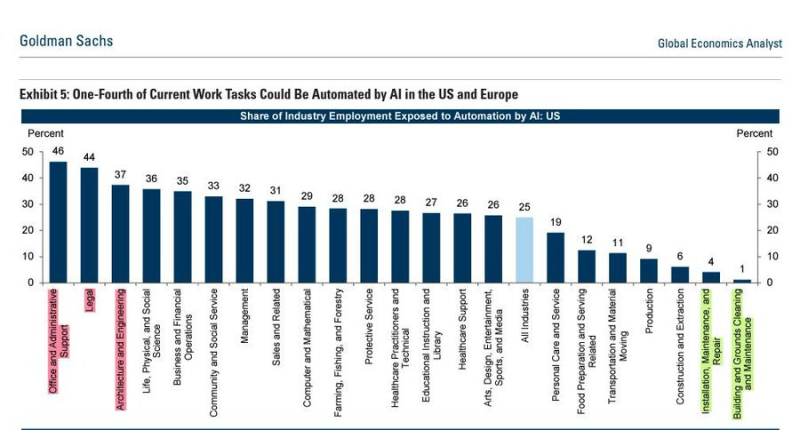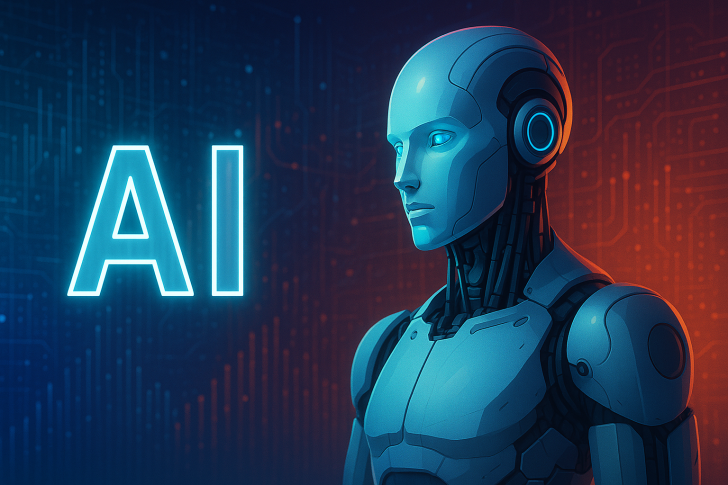● Eyisha Zyer recently shared a startling analysis from Goldman Sachs suggesting that AI might automate the equivalent of 300 million full-time positions globally. The report points out that while AI promises faster productivity and economic growth, it could also transform office work more rapidly than any tech revolution we've seen before.

● The biggest impact? Knowledge workers. Administrative roles face 46% exposure, legal services 44%, and architecture and engineering 37%. These jobs rely heavily on structured, text-based tasks—exactly where AI already beats human speed and efficiency. Goldman warns this rapid shift could trigger widespread job losses and growing wage gaps, especially in developed countries.
● But it's not all doom and gloom. Goldman's analysts believe AI-driven automation could add 7% to global GDP over the next ten years by freeing people from repetitive work and letting companies focus on innovation. The catch? We'll need smart policies—retraining programs, better education, and tax adjustments—to manage the transition and avoid deepening inequality.
● Not every job is equally vulnerable. Construction, repair, and maintenance roles face under 6% risk since they require hands-on skills AI can't replicate yet. Meanwhile, information-heavy industries are heading for major upheaval as AI tackles tasks once considered safe from automation.
 Eseandre Mordi
Eseandre Mordi

 Eseandre Mordi
Eseandre Mordi


